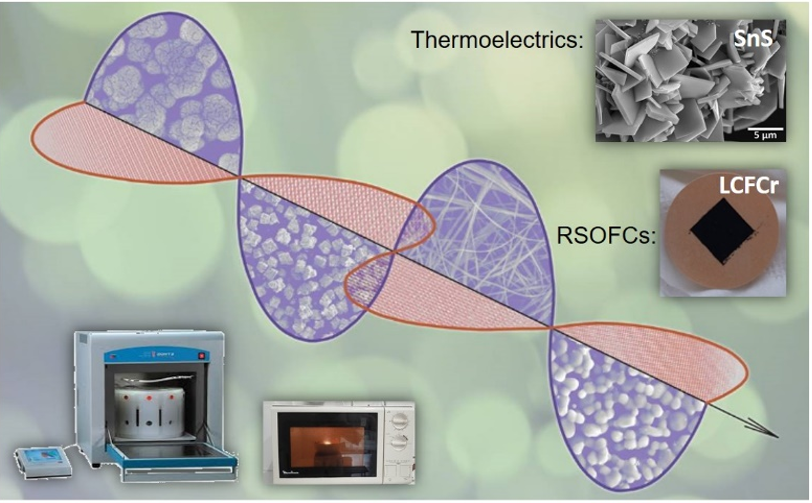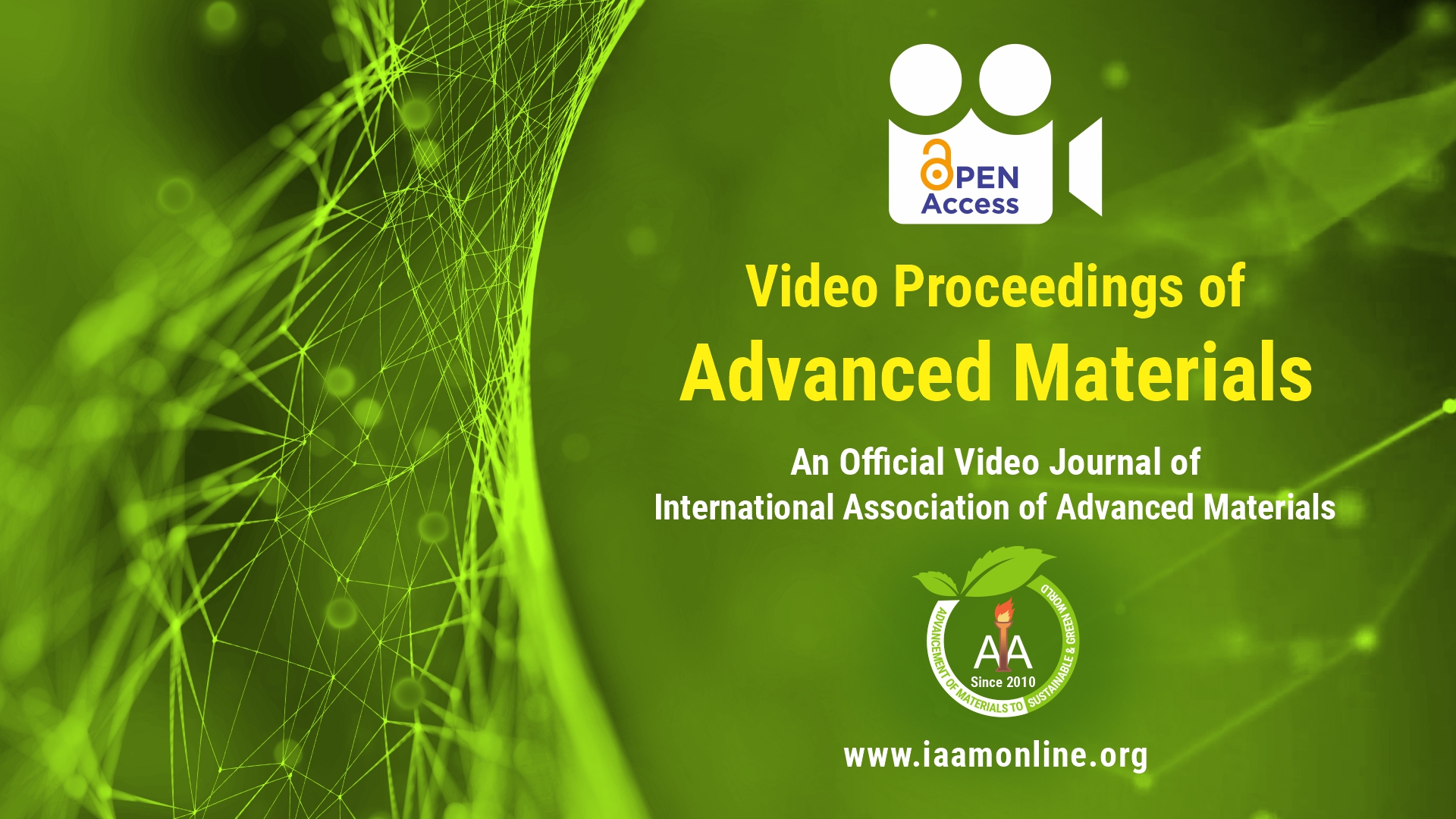Video Article Open Access
Microwave Chemistry: Rapid and Sustainable Routes for the Preparation of Energy Materials
Jesús Prado-Gonjal*, Marta María González-Barrios, Marina Tabuyo-Martínez, Elena Sánchez-Ahijón
Departamento de Química Inorgánica, Universidad Complutense de Madrid, E-28040 Madrid, Spain
Vid. Proc. Adv. Mater., Volume 2, Article ID 2108211 (2021)
DOI: 10.5185/vpoam.2021.08211
Publication Date (Web): 21 Jul 2022
Copyright © IAAM
Graphical Abstract

Abstract
The use of microwaves to produce functional materials is an attractive option gaining interest because of their potential benefits such as energy saving, short processing times, increased product yields, economy and environment issues, etc. In a microwave process, an inverse heating profile is produced. The energy is directly transferred to the material through the interaction of the matter at the molecular level with the electromagnetic wave [1,2].
In this communication, we will show that a wide range of materials for energy applications can be synthesized by using microwave irradiation:
- Materials for thermoelectric applications (SnS, SnSe) [3].
- Materials for reversible solid oxide fuel cells (electrodes: La0.3Ca0.7Fe0.7Cr0.3O3-d; electrolyte:
Ce1-xRExO2-d).
Furthermore, synthetic aspects, structural characterization and physical properties of the different phases will be discussed as well.
Keywords
Microwave synthesis; energy; functional materials; RSOFCs; thermoelectrics.
Acknowledgement
This work has been supported by the Madrid Government (Comunidad de Madrid- Spain) under the Multiannual Agreement with Complutense University in the line Program to Stimulate Research for Young Doctors in the context of the V PRICIT (Regional Programme of Research and Technological Innovation): Project PR65/19-22459.
References
- J. Prado-Gonjal, R. Schmidt, E. Morán, E. Inorganics, 2015, 3(2), 101-117
- I. Bilecka, M. Niederberger, Nanoscale, 2010, 2(8), 1358-1374.
- J. Prado-Gonjal et al. Materials Advances, 2020, 1(4), 845-853.
Biography
Jesús Prado-Gonjal completed his PhD at Universidad Complutense (Madrid, Spain) in May 2014, under the supervision of Prof. Emilio Morán and Dr. Rainer Schmidt, researching in the Solid State Chemistry group - Dpto. Química Inorgánica. His PhD was awarded with the "Premio Extraordinario de Doctorado 2014".
After his Ph.D., he joined the Solid State group at the University of Reading (32 months) as a postdoctoral research assistant. His scientific activity was ascribed to the field of synthesis, structural and physical characterization of thermoelectric materials. From February 2017 to March 2018, He has been a "Juan de la Cierva" fellow (Spanish MINECO program), working at the Instituto de Ciencia de Materiales de Madrid (ICMM) - CSIC, where he was a member of the research group 2D foundry. In April 2018, he started an "Atracción de Talento - CAM" fellow, researching in the Solid-State Chemistry group at UCM and he was selected for a Marie Curie fellowship (MSCA-IF). Currently, he is an Assistant professor in the Inorganic chemistry Department at Universidad Complutense de Madrid.
He is a co-author of 42 articles and 5 book chapters, with an h-index of 15 and an i10 of 20. He has presented his results at 18 National and 22 International conferences (70 total contributions) and was an invited speaker 6 times. He has been involved in 9 different research projects, including two European and 7 National based projects (2 of them as PI). At present, he is a board member of the RSEQ-STM.
His research is focused on the synthesis by alternative methods of materials for energy (thermoelectrics, SOFCs, batteries), the study of the structure of these materials by means of neutron powder diffraction and synchrotron x-ray diffraction and the electric and magneto-transport characterization of non-molecular materials.
Video Proceedings of Advanced Materials

Upcoming Congress



